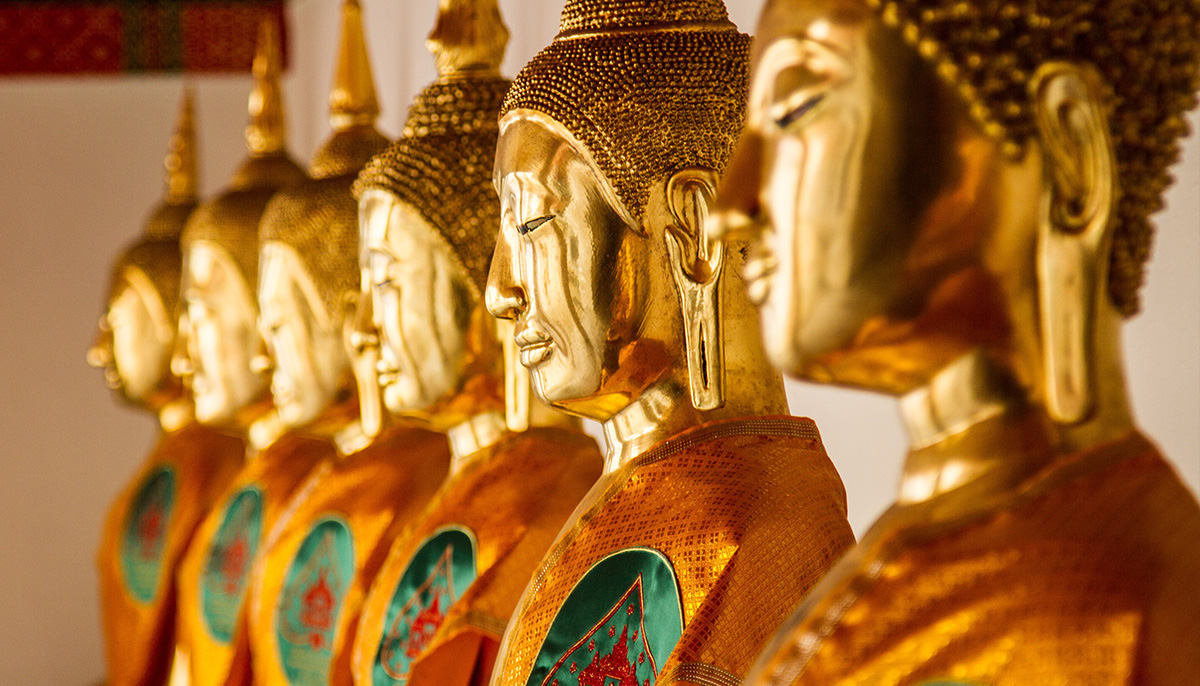Some traditions in the Buddhist world seem hopelessly out of touch—and that can sometimes leave us, as Buddhist practitioners, feeling powerless. I have struggled with my own lineage, especially in relationship to the work that needs to be done to confront racism, sexism, patriarchy, ableism, whiteness, and all of the various invitations to spiritual bypass. My takeaway from this rather painful struggle has been this: we cannot wait for lineage elders to institute the changes we want—we need to step up and lead. This clarity arises in part from an understanding that most of Buddhism is not that centralized, even if it feels like a few lineage elders control everything. Yes, the Buddhist world is still run by senior lineage holders, and their lack of education around cultural communication and the needs of a diverse global culture has posed real problems. But that doesn’t mean our traditions can’t change.
We are here to liberate ourselves and others.
Realizing this and acting on it is political, but not in the negative, strident way in which the term is often used. It is political because it is rooted in clearly understanding power. We must not forget that in religious practice, without the participants, without the people who practice the faith, the tradition will not last. Buddhism is no different. If their authority is to have any meaning, senior lineage elders must adapt.
The study of Buddhist history reveals that over the centuries, a number of Buddhist sects have died out. It can be scary to look at our traditions through the lens of impermanence, but when we look without attachment, both at the traditions that survived and those that did not, we see clearly that any expression of the dharma is an expression of the relative, of human inspiration. Therefore, we must not fear our feelings of smallness, especially when we feel at odds with what we perceive as a monolithic, all-powerful tradition. Such a tradition does not exist—at least not in that way. What matters most is that we practice, centered with the heart of awakening. We are not here to justify the royal existence of dharma kings and dharma princes; we are here to liberate ourselves and others.
Just as it is important to be authentic and to bring our voices and unique histories and experiences to our spiritual practice, we must also bring these to the way we participate in, and also challenge, our respective traditions. When individual practitioners stand up and model change, the tradition is impacted in ways that create greater wisdom and meaning for others. No matter who we are or how we identify, there is always room to model awakening in ways that challenge old, tired, unexamined assumptions.
My first teacher, Tsunma Dechen Zangmo, was unrelentingly fierce. She deliberately worked to decenter patriarchy and maleness in a very male-dominated faith tradition. She had a special gift for lifting up nuns and women so that their practice could be recognized as powerful and impactful. I try to hold her fierceness in my own practice; I work to reflect her way of empowering all around her in their practice of dharma. And I have spiritual friends on the path who are similarly fierce, directly confronting our tradition as a way of challenging it, holding it accountable, and thereby making it more relevant for others.
Whether we choose to participate in a system to change it and help birth its transition into a new form, or we choose to flat out reject systems and do the important work of clearing the ground for new growth, what is most important is the recognition that when we act from a place of authenticity and empowerment, we have immense power. When we bring the entirety of our being to this work, when we liberate the fear that previously made us feel small, the traditions we love will grow accordingly.


